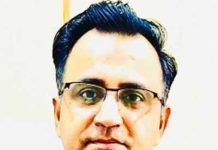Refer to five years prior. Things were not nearly as dire in 2017 as they are now. Pakistanis were not experiencing rampant inflation at the time, and the rupee hovered around 105 to the dollar, compared to more than 180 today. Political opponents and other critical journalists were not pursued, harassed, and abused in the manner in which they have been over the last four years. Additionally, Pakistan enjoyed improved relations with the West, China, and the Gulf states on a global scale. Even corruption, according to Transparency International, was at a low level.
Nonetheless, we were told that things were terrible. Pakistan had been ruined by corrupt dynasties, and we needed to be rescued. Imran Khan was presented as the messiah, who would cleanse us of the muck, “drain the swamp,” as Donald Trump used to say, and usher in the new. Some of us who warned at the time that the new could be even worse than the old were chastised as defenders of the status quo and supporters of corrupt dynasties such as the Sharif and Bhutto-Zardari families.
How will he accomplish this? I recall inquiring of friends and family members who backed Imran Khan. After all, wasn’t Gen Musharraf the one who sold us the same line? Didn’t he expel politicians from the NAB only to later induct them into his PML-Q? Wasn’t it true that Pakistan’s political leadership was exiled during his martial law and then offered an NRO at the end of his rule? Didn’t the electorate then reject his PML-Q and vote for the PPP and PML-N?
If Musharraf, with all his military might, was unable to eliminate the Sharifs and Bhutto-Zardaris from political relevance, how on earth was a hybrid regime going to succeed? As the proverb goes, deceive me once, shame on you; deceive me twice, shame on me.
Khan was portrayed as larger than life, a sort of superhero. However, Imran Khan was portrayed as larger than life, a sort of superhero. He captained Pakistan’s cricket team to World Cup victory in 1992 and established a state-of-the-art cancer hospital in Lahore.
Without a doubt, incredible accomplishments. His political acumen and positions, on the other hand, were less than stellar. In the 1997 election, his assessment was so far off the mark that, as a political novice, he ran in several constituencies throughout Pakistan and was soundly defeated in each. He finally won a seat in the National Assembly in 2002. Nonetheless, his voting record was far from stellar. He voted for Maulana Fazlur Rehman for Prime Minister in 2002 and opposed the Women Protection Bill in 2006.
None of this mattered to his supporters. Neither did the fact that, in 2013, when it became clear that his party would win enough seats to form government in Khyber Pakhtunkhwa, he chose not to contest a provincial assembly seat and become the province’s chief minister. It would have been an ideal opportunity for him to demonstrate his seriousness as a politician. Indeed, Nawaz Sharif and his brother, Shehbaz Sharif, ruled Punjab under Ziaul Haq in the 1980s.
However, Imran Khan was reserving himself exclusively for the position of Prime Minister. After all, he was a celebrity, and anything less was unworthy of him. From 2008 to 2018, whenever the PPP and the PML-N collaborated in the greater national interest to pass significant legislation such as the Seventh NFC Award and the 18th Amendment, he mocked them as ‘noora-kushti’ and claimed it was ‘muk-muka’ because they were collaborating to save their corrupt wealth.
His supporters embraced his aggression and were energized by his ability to discredit politicians. His divisive style prompted him to stage a 125-day sit-in in the heart of Islamabad, a ‘dharna’ that the PML-N government should never have permitted, as the dharna’s demands and methods were undemocratic. PTI was never a signatory to the Charter of Democracy and thus felt no obligation to adhere to democratic standards.
Imran Khan’s cult status grew in popularity. And, like Modi in India or Trump in the United States, he fed his supporters a steady diet of hatred and vitriol. In India, the hatred was directed at Muslims; in the United States, it was racial; and in Pakistan, it was directed at democracy itself.
In politics, dynasties are far from ideal, and the nature of democracy requires political parties to self-democratize. However, PTI never did. Rather than that, it embraced all shades of ‘electable’ and provided tickets to more father-son duos than any other political party in 2018.
While we should avoid dynasties whenever possible, if the choice is between Trump and the Clinton dynasty, I’ll take Hillary. Or, if I must choose between Modi and the Nehru dynasty, I will vote for Rahul Gandhi. Thus, in Pakistan as well, I will choose dynasty over cult.
Sign in
Welcome! Log into your account
Forgot your password? Get help
Password recovery
Recover your password
A password will be e-mailed to you.






